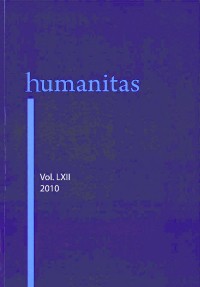Please use this identifier to cite or link to this item:
https://hdl.handle.net/10316.2/8516| DC Field | Value | Language |
|---|---|---|
| dc.contributor.author | Vitali, Marimilda | - |
| dc.date.accessioned | 2013-01-22T10:41:12Z | |
| dc.date.accessioned | 2020-10-02T08:08:02Z | - |
| dc.date.available | 2013-01-22T10:41:12Z | |
| dc.date.available | 2020-10-02T08:08:02Z | - |
| dc.date.issued | 2010 | - |
| dc.identifier.issn | 2183-1718 | - |
| dc.identifier.uri | https://hdl.handle.net/10316.2/8516 | - |
| dc.description.abstract | Segundo o cronista catalano Antonio Beuter, o inventor do decassílabo não foi um poeta da escola siciliana, mas sim Jordi de Sant Jordi. A esta mistificação, que se tornara bastante popular, Faria e Sousa substituiu outra, forjada pelo cronista Bernardo de Brito: já cerca de 1090 Gonçalo Hermigues, o traga-Mouros, teria composto alguns poemas em decassílabos, dedicados à sua amada Oureana. Na verdade, a canção de Hemigues faz parte de um corpus de cinco poemas pretensamente antigos, compostos sob o reino de Felipe II no intuito de enobrecer as orígens de Portugal. Traduzida por Almeida Garrett, a lenda de Hermigues foi logo objecto de uma longa controversia entre Teófilo Braga e Carolina Michaëlis. | por |
| dc.description.abstract | Was the decasyllable really invented by a poet of the Sicilian school? According to the Catalan chronicler Antonio Beuter, it is Jordi de Sant Jordi who should rather be credited with the invention of this verse. For Beuters plain mystification, which nevertheless had become increasingly popular, Faria e Sousa managed to substitute a literary forgery found in Bernardo de Britos Chrónica de Cister. According to Britos version, Gonçalo Hermigues, the legendary hero styled Traga-Mouro, would have written around 1090 some decasyllabic lines dedicated to his beloved Oureana. In fact, that is one of the five apocryphal poems composed during Philip IIs reign with a view to dignifying the origins of Portugal. After Garretts poetic translation, that legend became the subject of a polemic exchange between Teófilo Braga and Carolina Michaëlis. | eng |
| dc.language.iso | por | - |
| dc.publisher | Faculdade de Letras da Universidade de Coimbra, Instituto de Estudos Clássicos | - |
| dc.rights | open access | - |
| dc.subject | Faria e Sousa Rimas várias | eng |
| dc.subject | Origins of decassílabo | eng |
| dc.subject | Gonçalo Hermigues | eng |
| dc.subject | Faria e Sousa Rimas várias | por |
| dc.subject | Origens do decassílabo | por |
| dc.subject | Gonçalo Hermigues | por |
| dc.title | O discurso acerca de los versos de Faria y Sousa no prólogo do comentário das Rimas Várias de Camões | por |
| dc.type | article | - |
| uc.publication.collection | Humanitas vol. LXII | - |
| uc.publication.firstPage | 189 | - |
| uc.publication.lastPage | 224 | - |
| uc.publication.location | Coimbra | - |
| uc.publication.journalTitle | Humanitas | - |
| uc.publication.volume | 62 | por |
| dc.identifier.doi | 10.14195/2183-1718_62_11 | - |
| uc.publication.section | Artigos | - |
| uc.publication.orderno | 11 | - |
| uc.publication.area | Artes e Humanidades | - |
| uc.publication.manifest | https://dl.uc.pt/json/iiif/10316.2/8516/254825/manifest?manifest=/json/iiif/10316.2/8516/254825/manifest | - |
| uc.publication.thumbnail | https://dl.uc.pt/retrieve/11983320 | - |
| item.fulltext | With Fulltext | - |
| item.grantfulltext | open | - |
| Appears in Collections: | HVMANITAS | |
Files in This Item:
| File | Description | Size | Format | |
|---|---|---|---|---|
| 11.pdf | 341.23 kB | Adobe PDF |  |
Items in DSpace are protected by copyright, with all rights reserved, unless otherwise indicated.
